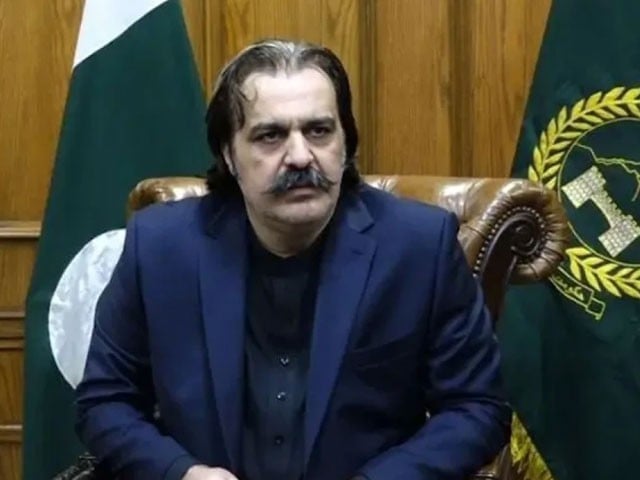In the intricate and volatile world of Pakistani politics, power plays and internal rivalries often become as dramatic as the policies they aim to influence. Recent developments in Khyber Pakhtunkhwa (KP) suggest a brewing storm within the ranks of Pakistan Tehreek-e-Insaf (PTI), where the tenure of Chief Minister Ali Amin Gandapur appears to be hanging by a thread. Insiders claim that prominent PTI figures, Atif Khan and Junaid Akbar, have orchestrated a plan to unseat Gandapur.
If these reports hold any truth, the stage is set for a political upheaval that could reshape PTI’s dynamics in the province. Let us delve deeper into the situation and the factors contributing to this brewing mutiny.
The alleged plot against Ali Amin Gandapur appears to be a calculated effort to dismantle his influence. Reports suggest that the first phase involves targeting Gandapur’s closest allies within the cabinet by leveling corruption charges against them. This strategy aims to isolate the Chief Minister, depriving him of his strongest support network.
Once Gandapur’s circle is weakened, the final blow—a direct move to unseat him—is expected to follow. This surgical political strike bears all the hallmarks of a well-coordinated power grab, with Atif Khan and Junaid Akbar leading the charge.
The motivations behind this internal rebellion appear to be twofold: Gandapur’s inability to advance Imran Khan’s confrontational agenda and his alleged disobedience towards Khan’s inner circle.
Imran Khan’s political approach has always been characterized by an aggressive stance against his opponents and a relentless pursuit of his vision for “change.” However, sources within PTI suggest that Gandapur has struggled to deliver on this agenda in KP. Whether it’s his inability to mobilize support for Khan’s broader political campaigns or his lack of progress in addressing KP’s governance challenges, Gandapur’s tenure has reportedly fallen short of expectations. As a result, his continued leadership may now be viewed as a liability rather than an asset to PTI’s objectives.
Another factor contributing to Gandapur’s precarious position is his alleged resistance to influence from Imran Khan’s close circle, including his wife, Bushra Bibi. Gandapur’s perceived independence may have created friction with Khan, who reportedly prefers loyalty and compliance from his inner circle. This dynamic could explain why PTI’s leadership might now be inclined to replace Gandapur with someone more pliable—someone willing to fully align with Khan’s directives and strategies.
Atif Khan and Junaid Akbar, both seasoned politicians within PTI, have long been seen as key figures in the party’s KP chapter. Their alleged involvement in the plot to unseat Gandapur suggests that they are positioning themselves for greater influence within the province. Atif Khan, in particular, has previously been sidelined in PTI’s power structure, and this could be his opportunity to reclaim prominence. By orchestrating Gandapur’s downfall, these leaders may not only consolidate their own power but also align themselves more closely with Imran Khan’s vision for KP.
The internal strife within PTI comes at a time when the party is facing significant challenges in KP. From governance issues to growing public dissatisfaction, the province has become a litmus test for PTI’s ability to deliver on its promises. Gandapur’s perceived failures have only exacerbated these challenges, creating an opening for rivals to push for change. However, this internal power struggle also risks undermining PTI’s stability in the province, potentially weakening its position ahead of future elections.
If the reports of an impending coup against Gandapur are accurate, the coming weeks could see a dramatic shift in KP’s political landscape. The removal of a sitting Chief Minister is no small feat, and the fallout could have far-reaching implications for PTI. While Gandapur’s critics within the party may see his ouster as a necessary step to rejuvenate PTI’s fortunes in KP, it could also deepen divisions within the party, creating new challenges for Imran Khan’s leadership.
The political intrigue surrounding Ali Amin Gandapur’s tenure as Chief Minister of Khyber Pakhtunkhwa is a stark reminder of the complexities and power struggles within PTI. Whether this alleged plot succeeds or fails, it underscores the challenges facing the party as it seeks to maintain its grip on KP amidst growing internal and external pressures. For Gandapur, the writing may already be on the wall. The question is not just whether he can survive this political storm, but also what his potential downfall would mean for the future of PTI in one of its most critical strongholds.


